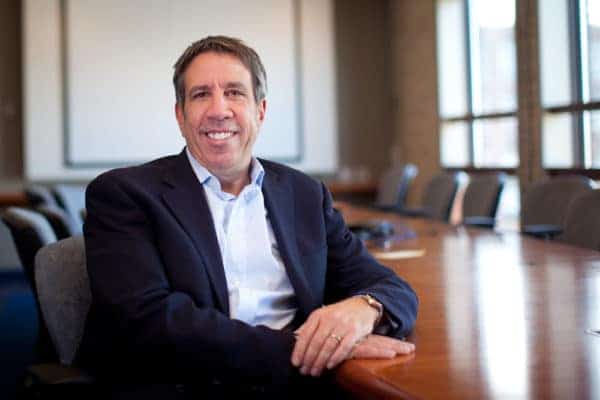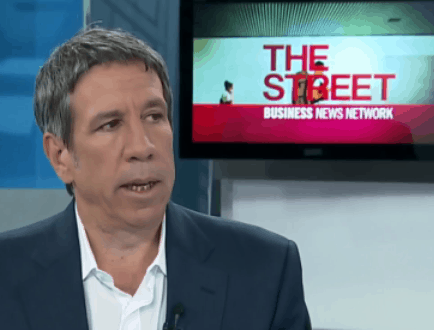
Redmond: “Our biggest competition, which is still terrestrial radio, is free so we have been competing with free since inception.”Last week, SiriusXM Canada (TSX:XSR) reported a surprisingly strong fiscal 2013, earning $12.19-million on revenue that climbed 11.3% to $288.9-million. Shares of the company got another boost, adding to a chart that has been climbing all year.
How did this happen? Weren’t disruptors like Pandora, Songza and Slacker Radio supposed to democratize music and eliminate paid content?
CEO Mark Redmond talked to Cantech Letter about the company’s most recent quarter, it’s recent turn to profitability and what Sirius has learned about competing against free.
Mark, congrats on a great quarter. How would you characterize this period of time for SiriusXM Canada?
This is a very exciting time for SiriusXm Canada. We are now two years post-merger and continue to experience solid growth in both subscribers and revenue. In fact, we have added approximately 440,000 net total subscribers since the merger and now have 2.4 million subscribers, which places us among the largest Canadian subscription-based media companies, based on number of subscribers. Our focus has now been shifted from merger integration to execution of several strategies designed to maintain our growth trajectory.
For us, content differentiation is the key. The breadth and exclusivity of our content is the reason subscribers are willing to pay a monthly fee, given the many free services available.
How important is the in-car radio market to SiriusXM Canada?
The in-car radio market is by far our most important segment. This channel generates the lion’s share of our subscriber growth and continues to gain prominence as OEMs increase penetration into more vehicle models. Approximately 58% of all vehicles sold in Canada today are equipped with a satellite receiver and there are approximately 5 million satellite-enabled vehicles in the marketplace or approximately 24% of all vehicles on the road in Canada. This number is expected to increase to more than 10 million by the year 2018.
How has the plan with the used car market been developing since you implemented it last summer?
We are extremely pleased with the progress to date. Although still in its nascent stages, we currently have more than 800 active dealers participating in the program and that number keeps growing each month. Dealers certainly see the benefit of the program, and for us, giving prospective customers a free three-month trial is an excellent way to expose them to our unique content. We currently have three Certified Pre-owned partners in place and expect that number to grow to 14 by the end of fiscal 2014.
Is the company looking at developing a standalone web station? The challenge there is that you’re competing with free. On the other hand, the future of radio appears to be moving towards user customizability and engagement, with users getting what they want, when they want it, on a platform or device they feel comfortable with…
Well, our biggest competition, which is still terrestrial radio, is free so we have been competing with free since inception. We do have a robust unified media player, which we refer to as SiriusXM 2.0. With SiriusXM 2.0, subscribers can tune in to access all the great, exclusive content that SiriusXM Canada has to offer, online or through a dedicated portable satellite radio. They can also listen on smartphones or tablets through our media player and mobile apps. Supplementing our satellite service — which provides uninterrupted service in North America — with an IP-based delivery mechanism, gives subscribers the opportunity to consume our content on multiple platforms. Consumers like choices, so they appreciate the investments we have made in providing additional features and functionality to enhance their entertainment experience.
How has the addition of Tim Casgrain to your board affected the company? With his background at the CBC, and presumably with Canada’s regulatory environment, surely he brings a lot of experience in negotiating that field?
Tim recently joined the Board, but all our Board appointees come with significant business and or regulatory experience. Tim is an experienced executive with a wealth of knowledge that we are anxious to tap into.
A year ago, SiriusXM Canada was losing money. But you’ve been outperforming the TSX Composite index since May of this year. All of the indicators for strong performance, from free cash flow, to an increase in subscribers, impressive revenue, solid growth, etc. are there. What’s the plan for continuing the growth?
Investors like growth and they like income. For those looking to diversify beyond the financial and energy sectors, our stock is one of the few that can provide both growth and income. We believe there is room to grow our top line by adding new subscribers and reaping the benefits from some of our premium services. We intend to grow subscribers in the near-to-medium term by increasing penetration rates, optimizing our conversion rate and expanding our pre-owned vehicle program.
With Twitter Music, Songza, Rdio, etc. ramping up, what are SiriusXM Canada’s strategies for retaining existing subscribers?
For us, content differentiation is the key. The breadth and exclusivity of our content is the reason subscribers are willing to pay a monthly fee, given the many free services available. Keep in mind that we are an entertainment company, not a radio company per se. In addition to commercial-free music, we provide our subscribers with a range of other compelling content, including talk, sports, news, comedy, etc…. There is something for everyone on SiriusXM and that is the reason we continue to thrive despite competition from free radio and online streaming services.
Is there any news on the regulatory horizon in terms of how you’re treated compared to terrestrial radio stations?
There has been nothing new since our last hearing, which was in November 2012. Out of that hearing, came the decision that we are required to pay 4% of eligible revenue for Canadian Talent Development. This represented a 1% reduction from what we were previously paying, but is still far above the approximately 0.5% of revenue paid by most terrestrial radio companies. SiriusXM also has more stringent Canadian conditions of licence than terrestrial broadcasters. For example, our Canadian music channels must be 85% Canadian and play 25% new music and 40% music from emerging artists. Our talk channels must also be 85% Canadian with 70% of the content being original, meaning it is produced for SiriusXM and broadcast for the first time on the SiriusXM network. While SiriusXM remains committed to Canadian talent, we would also like to eventually see a more level playing field with terrestrial.
______________
Leave a Reply
You must be logged in to post a comment.






 Share
Share Tweet
Tweet Share
Share




Comment